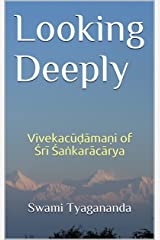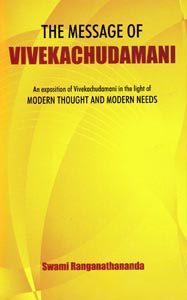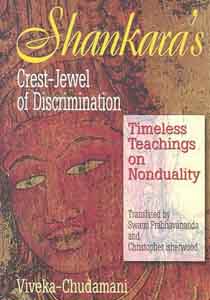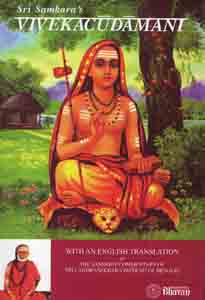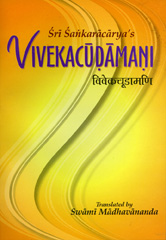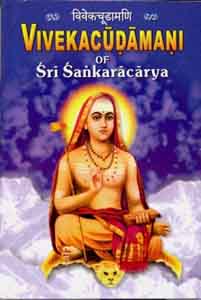Vivekachudamani
Looking Deeply
Translation and notes on Sri Sankara's Vivekachudamani by Swami Tyagananda.
Vivekachudamani, a favorite of Vedanta students, follows a systematic scheme in its presentation but, because its 580 verses are not subdivided into chapters or sections, getting a grasp on the text becomes a challenge for many. For that reason the author has divided the text into four sections: The first section is introductory. It sets the stage for a dialogue between the student and the teacher. The second section applies discernment to distill the meaning of "this" (world), "that" (the Reality beyond), and "me" (the individual). This is done as a preparation for an analysis of the Upanishadic teaching: "You are That," which is the focus of section three. In the concluding section we read the exchange between the newly enlightened student and the teacher who is delighted to see the transformation.
More info →
Message of Vivekachudamani, The: An Exposition of Vivekachudamani in the Light of Modern Thought and Modern Needs
An exposition of Vivekachudamani in the light of modern thought and modern needs.
More info →Shankara’s Crest Jewel of Discrimination (Vivekachudamani)
Very readable English translation of Vivekachudamani. Includes introduction to Shankara's philosophy and a sketch of his life, also a translation of Prasna-Uttara-Malika (Garland of Questions and Answers). see: Vivekacudamani
More info →Vivekacudamani
English translation with the scholarly and profound commentary of Sri Chandrashekhara Bharati, the thirty-fourth abbot of Srngeri Math. Devanagari and transliterated text.
More info →Vivekacudamani of Sri Sankaracarya / Madhavananda
This work of Sri Sankaracarya is a masterpiece of Advaita Vedanta literature. A graceful and scholarly translation by Swami Madhavananda. Devanagari text, English translation and notes.
More info →Vivekacudamani of Sri Sankaracarya / Turiyananda
A free English translation, bordering on a commentary, by one of the direct disciples of Sri Ramakrishna. This commentary comes from a transcription of talks given by the swami at Shanti Ashrama (1901-1902) and taken down in shorthand and later transcribed by an ashrama member, Ida Ansell. Devanagari and transliterated text.
More info →
 Streaming
Streaming